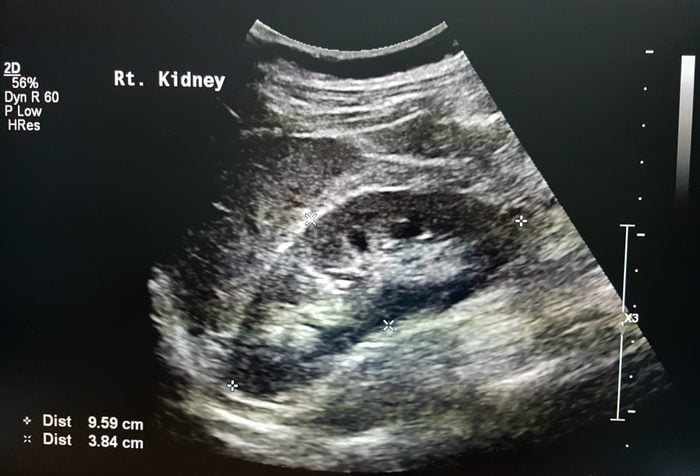
What do your kidneys really do, anyway?
Most people don’t think much about their kidneys until something is really wrong. Considering they’re you’re built-in detox machines, you might want to pay closer attention to these fist-sized, bean-shaped organs. Sometimes referred to as the body’s “master chemists,” your kidneys sit just below your rib cage, one on each side of your spine. They filter your blood to remove any waste and excess fluids, producing urine. They also ensure that you have the right amount of minerals, like potassium and sodium in your blood; another key kidney job is producing hormones that help control your blood pressure.
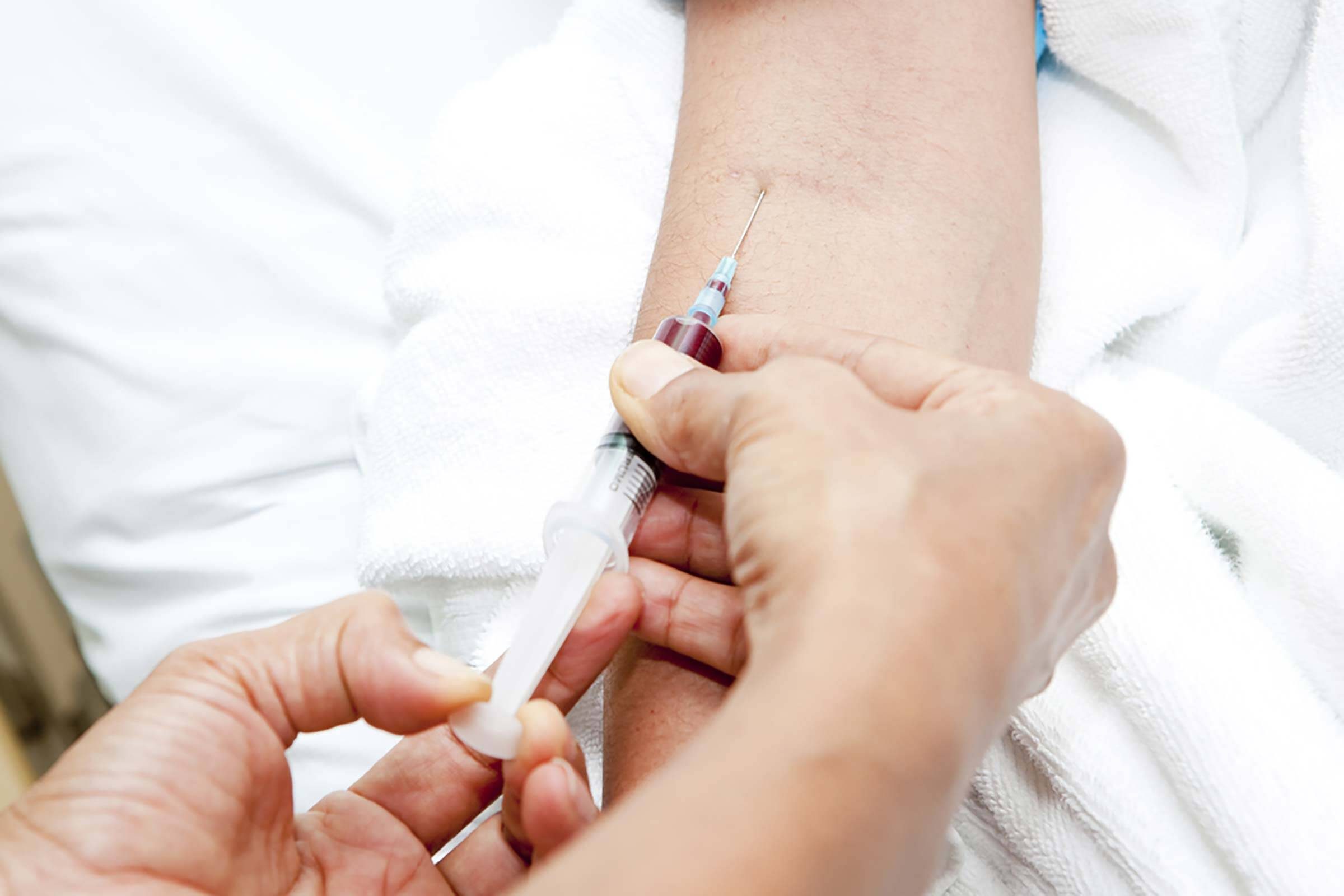
How do you know if something is wrong?
“Most kidney disease is completely invisible, and people only find out about it after a routine test that measures kidney function. By this time, there is pretty significant disease,” cautions Joel Topf, MD, a nephrologist at Oakland University William Beaumont School of Medicine in Royal Oak, MI, and a spokesperson for the American Society of Nephrology.
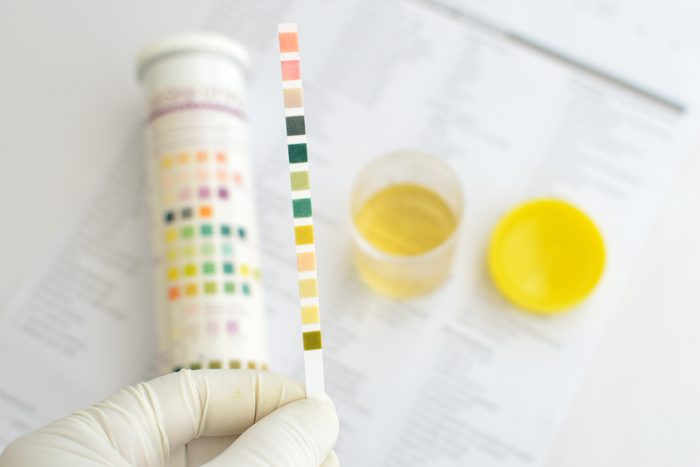
The kidney test
The best way to diagnose kidney disease is through a urine screening test that looks for protein in the urine, blood, minerals that can form kidney stones or white blood cells and bacteria and a blood test for creatine, Dr. Agarwal says. Creatine is normally removed from your blood by your kidneys, but when kidney function slows, creatinine level rises. “Urine and blood analysis are a good idea, and sometimes kidney ultrasound can provide more clues.”
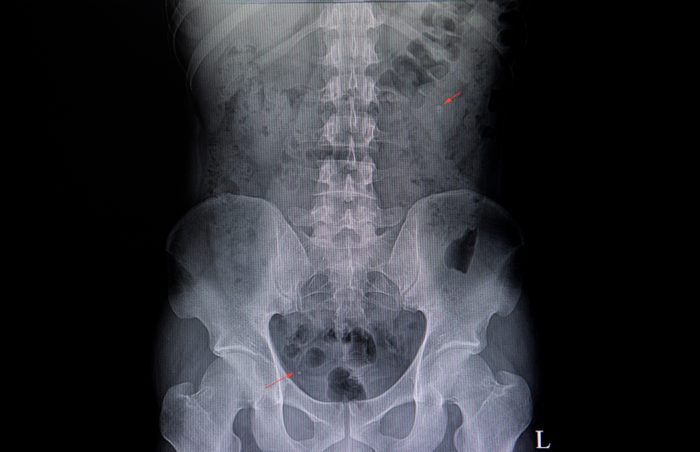
Sign: You are overwhelmed by sudden and severe pain
Each year, more than half a million people go to emergency rooms for kidney stones, according to the National Kidney Foundation. If you have high levels of certain minerals your urine, kidney stones (hard, pebble-like pieces of material) can form in one or both of your kidneys. “Pain associated with kidney stones often comes on suddenly and is sometimes described as excruciating as the pain associated with labor,” says Douglas Propp, MD, Medical Director and Chair of Emergency Medicine at Advocate Lutheran General Hospital in Park Ridge, Illinois. Dr. Propp says most patients pass their kidney stones on their own, though doctors sometimes prescribe medication to either manage the pain or to help the stone pass. Some stones may even require surgery. Learn how long it takes to pass a kidney stone.
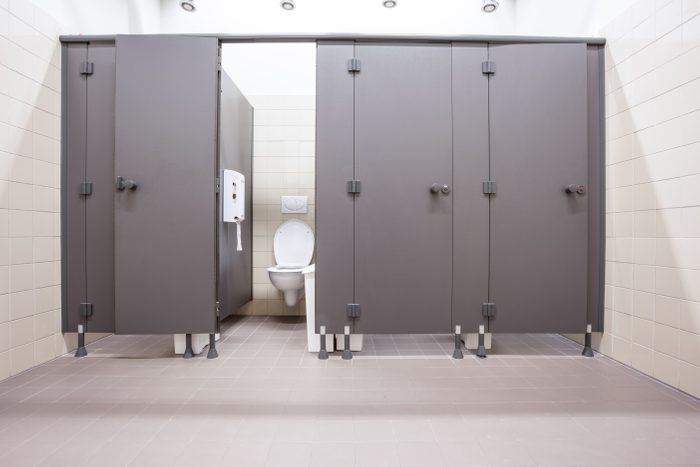
Sign: Blood in your urine
Another possible warning sign of kidney disease is blood in your urine. This can be a marker of kidney stones, kidney infection, and other kidney diseases. “The early signs of kidney disease tend to be vague but looking at your urine can give you important clues,” says Anil Agarwal, MD, director of interventional nephrology at The Ohio State University Wexner Medical Center in Columbus, Ohio. “Any blood in your urine or change in the color that may indicate blood—as well as foamy urine (which suggests that there is protein)—means it is time to get things checked,” he says. Learn what else your pee can reveal about your health.
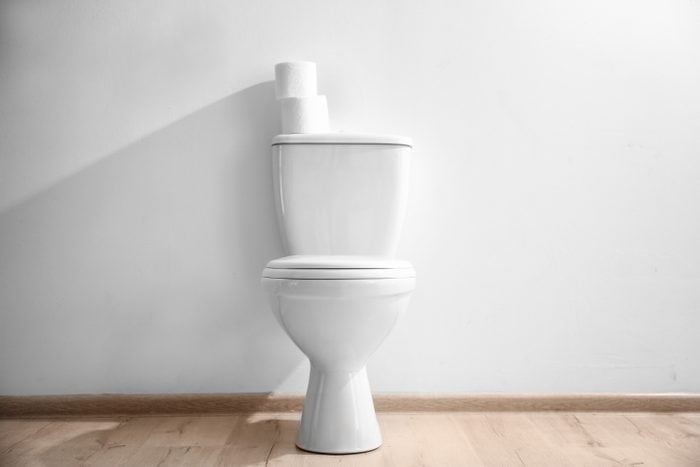
Sign: Your constant urge to pee
Because your kidneys produce urine, frequent—or very infrequent—trips to the bathroom can both be signs of kidney disease. For some people, kidney disease results in false urges to pee, while others will report a greater amount of urination that may even wake them up at night, according to the National Kidney Foundation.
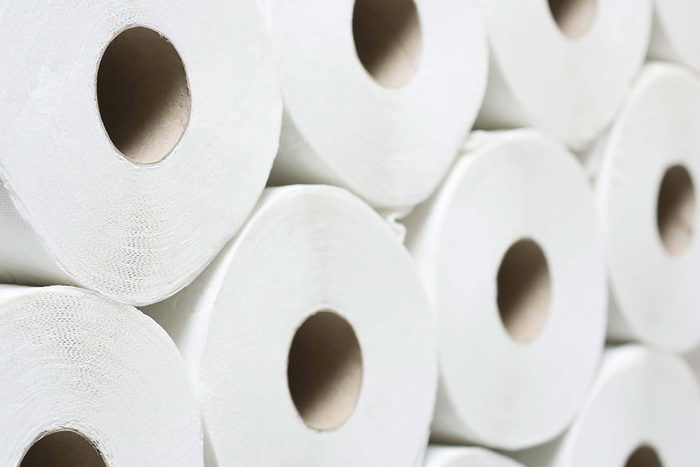
Sign: Pain when peeing
Because a kidney infection is a type of urinary tract infection, you’ll have inflammation all the way down your urethra. The bacteria don’t just invade the lining of your bladder and kidneys, explains Charles Modlin, MD, MBA, a urologist with Cleveland Clinic. They also can infiltrate the tissue and nerve endings of your urinary tract, activating pain receptors in the area. And when nature calls—ouch.
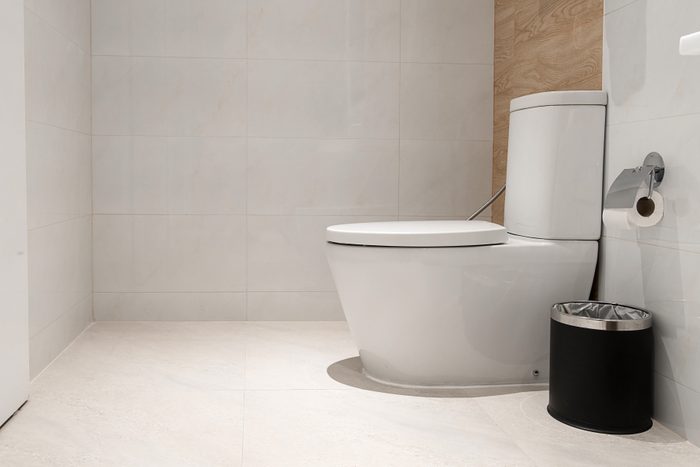
Sign: Cloudy urine
During a kidney infection, your pee might look cloudy. “Your body is sending white blood cells to fight the infection,” explains Nicole Ali, MD, a nephrologist at NYU Langone. “What you see in the urine is blood cells and bacteria building up.”
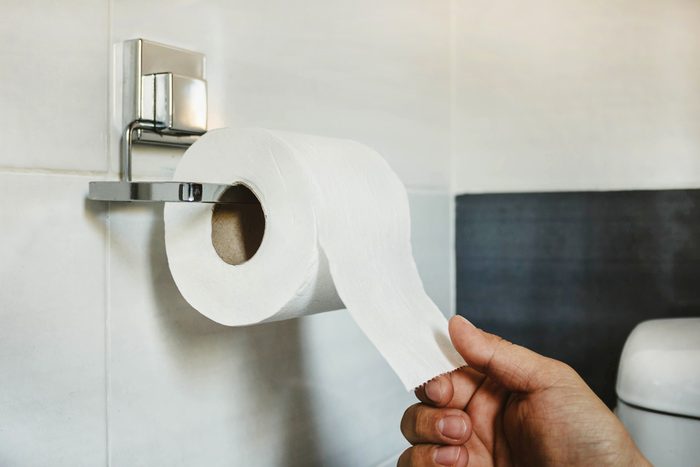
Sign: Foul-smelling pee
Noticing an unusual stench when you urinate could be another one of the kidney infection symptoms you experience. “That’s the fermentation of the bacteria,” says Dr. Modlin. Don’t jump to conclusions if it’s your only symptom, though. Cloudy, strong-smelling urine can also be a sign of dehydration, he says, so see if drinking more water helps. This is how much water you should really be drinking.
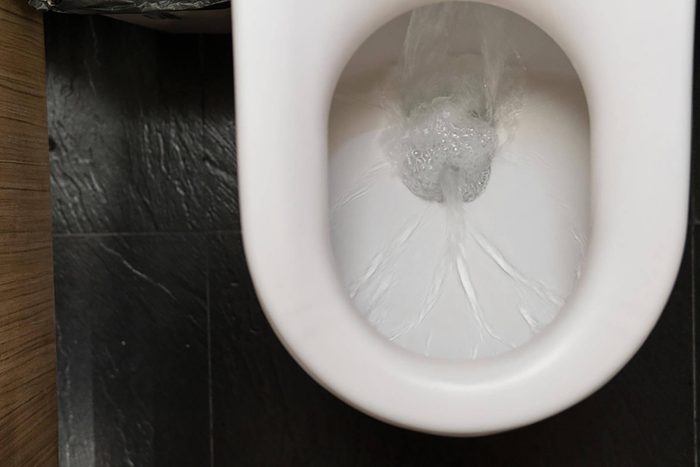
Sign: Pus in the urine
In severe cases of kidney infection, you might see pus when you urinate because of a buildup of white blood cells and bacteria, says Dr. Ali. “At the point where someone is seeing pus in the urine, they probably have a bad infection,” says Dr. Ali. Make sure you’re not making these 7 innocent mistakes that put your kidneys at risk.
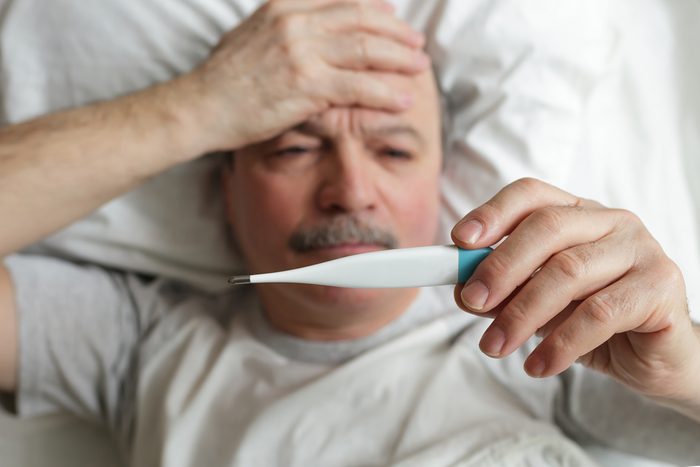
Sign: Fever
Bladder infections don’t normally cause a fever; running a temperature could indicate the infection has traveled up to your kidneys. Certain types of kidney stones can also cause infections—and fevers. “When the kidney gets obstructed, it can lead to fever because there can be back up of urine and that can lead to an infection,” says Dr. Coogan. Fever happens to be one of the 50 health symptoms you should never ignore.

Sign: Your gender
Most kidney infections will start with bacteria that travel up the urinary tract to the bladder; the infection can then make its way to the kidneys. Because women have a shorter urethra than men, they’re at higher risk for urinary tract infections (UTIs)—and that leaves them more vulnerable to kidney infections too, explains Dr. Ali. Other diseases such as heart disease also present differently in women.
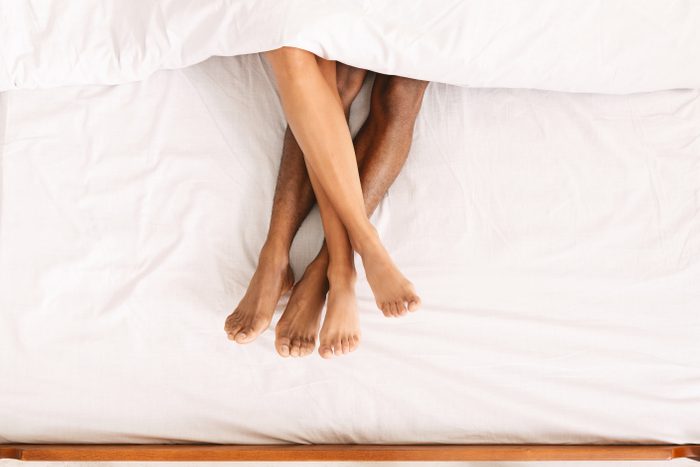
Sign: More sex
Frequent intercourse or a new partner may also increase a woman’s risk for kidney infection, says Dr. Ali. As the body fights the infection, red blood cells can end up in your urine, she says.
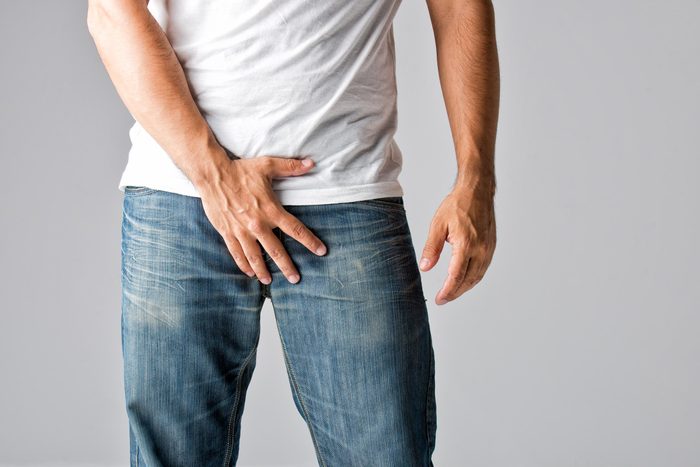
Sign: Groin pain
Men might feel the pain of a kidney infection deep in the groin. “When we’re in utero as embryos, our kidneys start lower in our body, and as the fetus grows, the kidneys ascend,” says Dr. Modlin. “They have that same nerve supply as some of the structures down in the groin.” You might think your testicles are the problem, for example, but if you have other UTI symptoms, your doctor will test for a kidney infection.
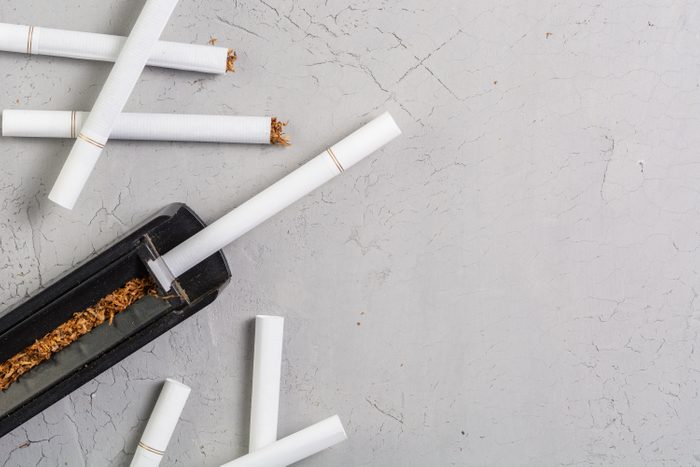
Sign: Your smoking habit
Kidney cancer is most frequently caused by smoking, says Jason Abel, MD, urologic surgeon and member of the UW Carbone Cancer Center. Your risk is actually proportionate to how much you smoked, according to the American Cancer Society, and quitting is the only way to begin to lower these odds. Try one of these 20-plus ways to stop smoking and start your path towards a healthier, smoke-free life.

Sign: Subtle side pain
Occasionally, flank pain may be a sign of kidney cancer, says Dr. Abel. Persistent side pain that lingers and doesn’t go away should be checked out by your doctor. Don’t jump to conclusions and assume the worst: Here are some other conditions that can cause right-side abdominal pain and left-side pain.
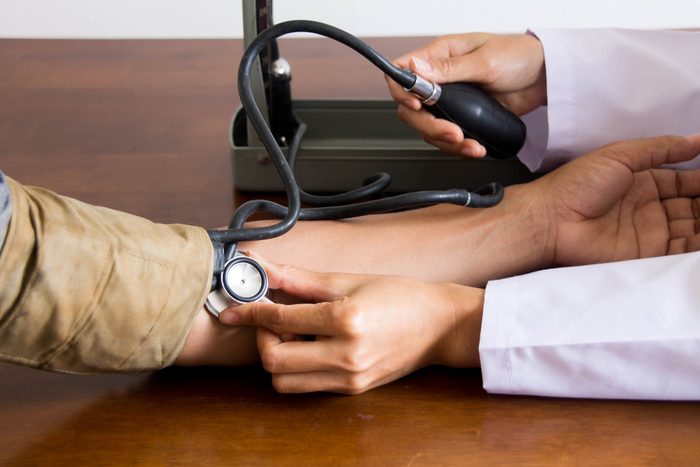
Sign: Your blood pressure
Often called the silent killer because it produces no symptoms, high blood pressure is a known risk factor for heart and kidney disease. Here’s why: Uncontrolled high blood pressure clamps down on arteries around the kidneys, causing them to constrict and reduce blood flow, explains Deborah Clegg, PhD, a professor of Biomedical Sciences in the Cedars-Sinai Division of General Internal Medicine and Department of Biomedical Sciences in Los Angeles. Nearly half of American adults have high blood pressure and many don’t even know it. Blood pressure numbers higher than 120/80 mm Hg are considered suspect. “High blood pressure is a huge predictor of failing kidneys so keep on top of your blood pressure.” Here are 23 foods that can help lower your blood pressure.
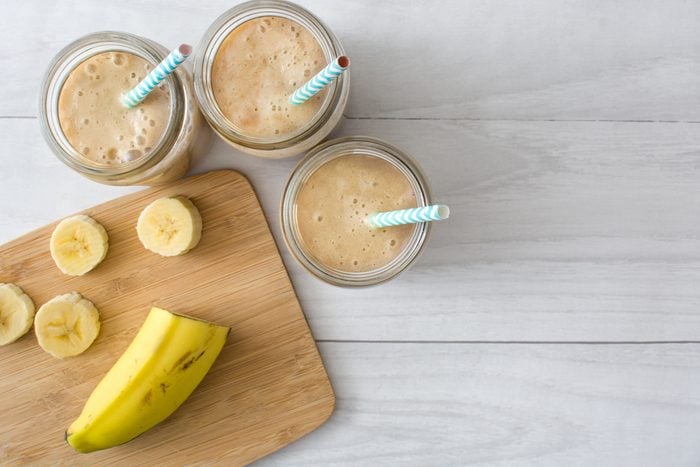
Sign: Your salt-to-potassium balance
Sodium is regulated by your kidneys, and it helps control your body’s fluid balance, but too much may also be a risk factor for kidney disease in some people. It’s a complicated relationship, Dr. Clegg explains. Diets that are high in sodium tend to be low in potassium and it may be the ratio that is taxing your kidneys. Healthy kidneys flush excess sodium out in the urine, but this also removes potassium. “If potassium levels are low, the body tries to hold onto it, which also means holding onto sodium,” she says. Sodium encourages the body to pump more fluid into your circulation, and blood pressure climbs. “In some people, especially those with high blood pressure, heart failure, or impaired kidney function, the kidneys hang onto sodium no matter what, further complicating the picture,” she says. Those with kidney disease should also be cautious of too much potassium in their diet, as it could result in a condition known as hyperkalemia, or elevated potassium levels. If not treated, people with severe hyperkalemia can be at risk for abnormal heart rhythms and even sudden death.One way to flush sodium out of the body is by getting more potassium in your diet. Here are 10 foods higher in potassium than a banana.
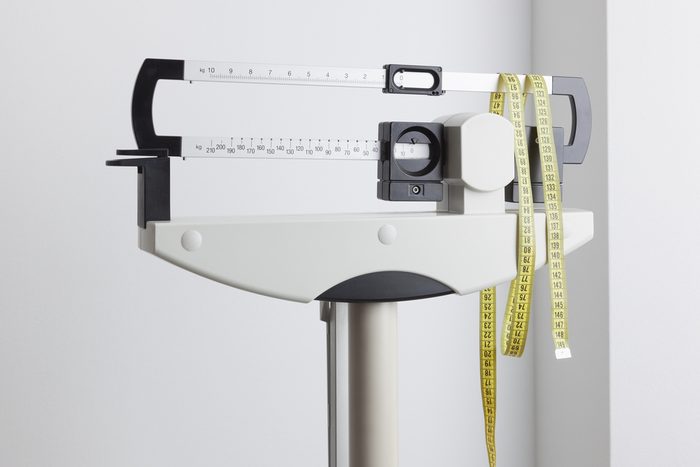
Sign: Your weight
Obesity is also linked kidney disease risk, Clegg says. “If you are overweight or obese, you are more likely to have high blood pressure or diabetes and this is a deadly triad for kidney health.” Losing weight at any age can be a challenge, but it seems a whole lot harder after 50. It’s not impossible though especially if you follow these 50 expert-approved weight loss tips.
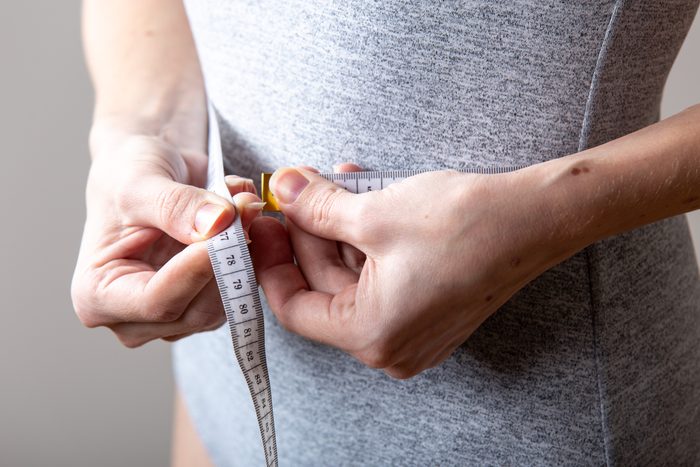
Sign: Your spare tire
Weight concentrated around your midsection—belly fat—may also place you at a greater risk for kidney disease, among other ills. “If you carry extra weight in your gut, fat cells may accumulate in and around your kidneys and interfere with their function,” Clegg says. Carrying excess weight in your belly also raises your risk for developing insulin resistance and diabetes—and these can up your risk for kidney disease. The good news? Learn how eating more vitamin D-rich foods may blast belly fat.
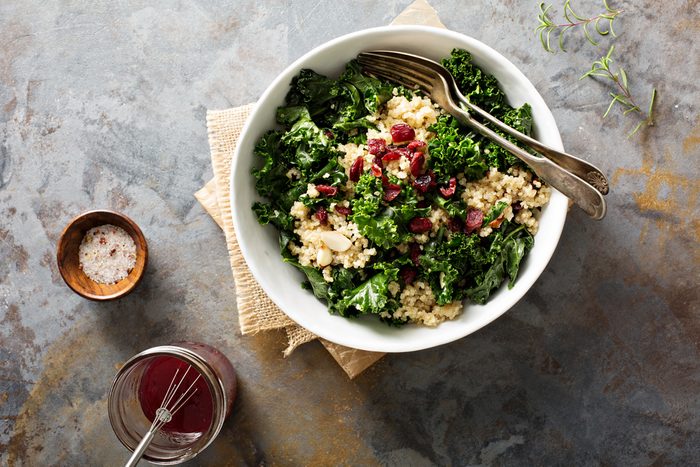
Sign: Not enough veggies on your plate
If your diet is heavy on red meat and animal proteins and low in fruits and veggies, your kidneys may be in jeopardy, Clegg says. The National Kidney Foundation recommends plant-based diets such as the DASH (Dietary Approaches to Stop Hypertension) diet, which is high in fiber, low in sodium, low in saturated fat and processed meats, and delivers numerous sources of potassium, phosphorus, magnesium, and calcium. “Plant-based diets with more fruits and vegetables are more beneficial to your kidneys and overall health and can preserve kidney function by keeping blood pressure down and keeping blood sugar or glucose levels under control.”
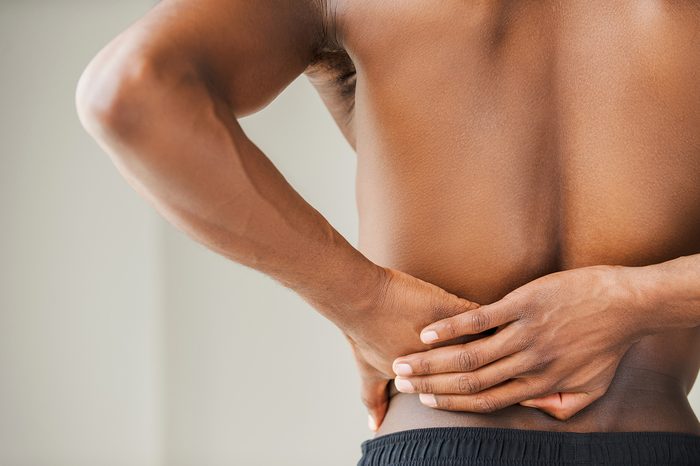
Sign: Your aching back
Back pain can be a warning sign of kidney disease. “The pain is not in your mid- or lower back because that is not where your kidneys are,” Dr. Agrawal says. “Your kidneys are very close to your rib cage, so high back pain may be a symptom of kidney infection or a kidney stone.” Here are 8 signs your back pain is actually an emergency.
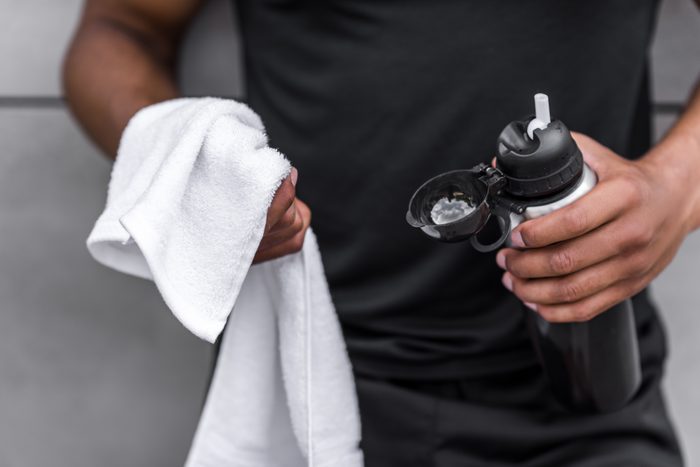
Sign: You drink too little water
Water helps remove waste from your bloodstream in the form of urine, but when you are dehydrated, there isn’t enough water to keep things flowing. Severe dehydration can lead to kidney damage via a build-up of wastes and acids in the body that can clog the kidney, and dehydration can also contribute to the formation of kidney stones, according to the National Kidney Foundation. Here are some clever ways to staying hydrated.
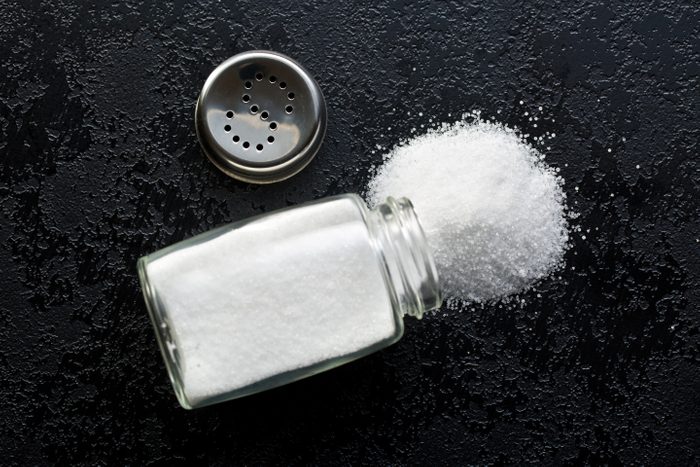
Sign: You eat too much salt
The majority of salt in our diet comes from processed foods, not the salt shaker. Extra sodium and fluid buildup from overwhelmed kidneys can cause swollen ankles, puffiness, a rise in blood pressure, shortness of breath, and/or fluid around your heart and lungs, according to the National Kidney Foundation. Read food labels carefully and choose those foods low in sodium that contain 35 mg of sodium or less per serving. Here are 15 things that can happen to your body when you cut back on salt.
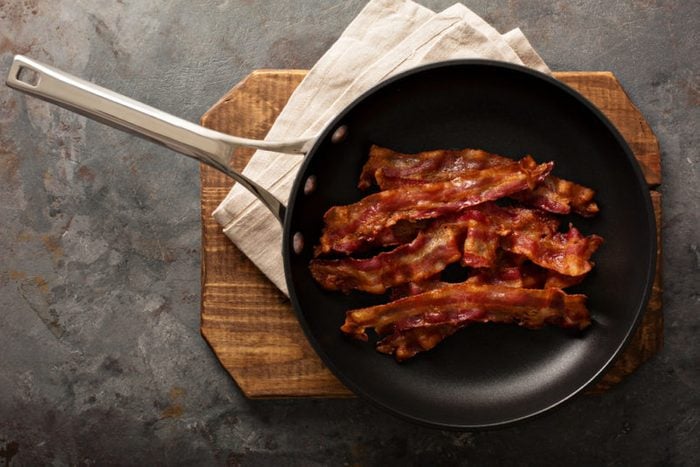
Sign: You eat too much meat
High-protein diets are all the rage these days, and some of these eating plans encourage eating loads of animal protein—of any kind—while cutting back on carbs. But all that protein can raise the level of uric acid in your blood, and that can cause kidney stones. (Uric acid can also cause gout.) A high-protein diet also reduces levels of citrate, the chemical in urine that helps prevent stones from forming. “If you are healthy and eat a steak once in a while, it’s likely not an issue, but if you overdo it, it may affect your kidney function,” Dr. Agarwal says.
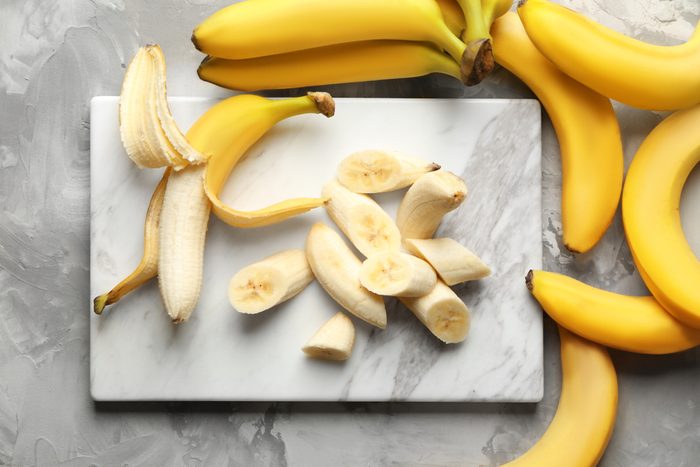
Sign: You overdo the potassium
Although the mineral can help prevent kidney disease, doubling down on potassium-rich foods (or supplements) spells trouble if you already have kidney disease. “Be very cautious about increasing potassium because it’s cleared by kidneys; if they aren’t working well, potassium can build up in the blood and cause problems,” says Dr. Agarwal.
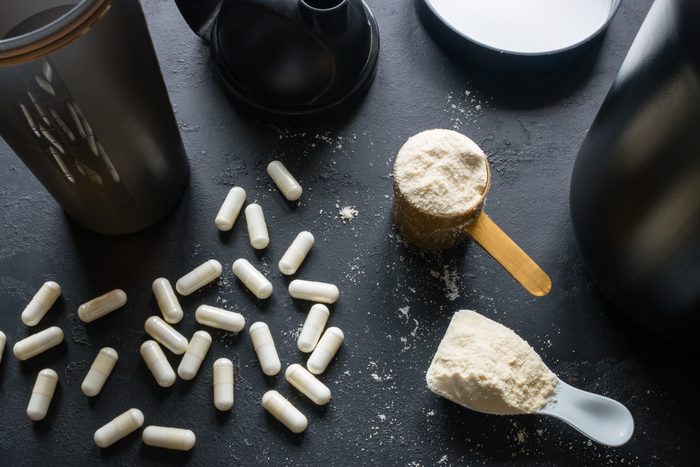
Sign: You take muscle-building supplements
Many athletes and bodybuilders take creatine supplements to build muscle; just know that creatinine is a marker for kidney damage: People with kidney disorders should check with their doctors before taking these supplements, according to the Mayo Clinic. Watch out for these everyday habits that could be harming your kidneys.
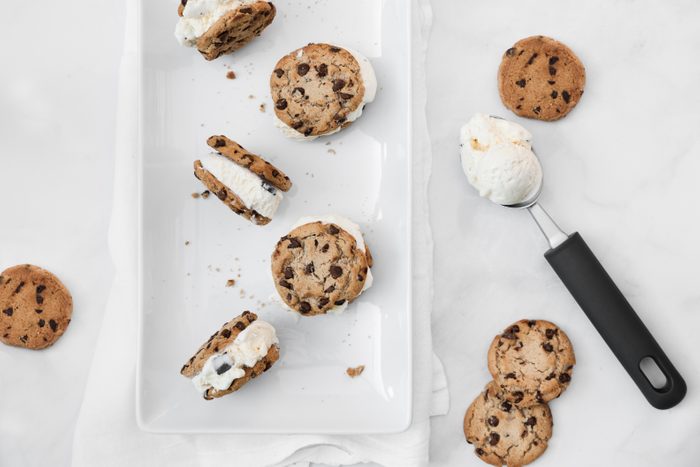
Sign: You eat a lot of sugar
Continually high blood sugar—especially in people with poorly controlled diabetes—can damage the small blood vessels in your body, including the ones your kidneys depend upon to do their job, says Jaime Uribarri, MD, a Professor of Medicine at Icahn School of Medicine at Mount Sinai and Director of the Home Dialysis Program at The Mount Sinai Hospital in New York City.
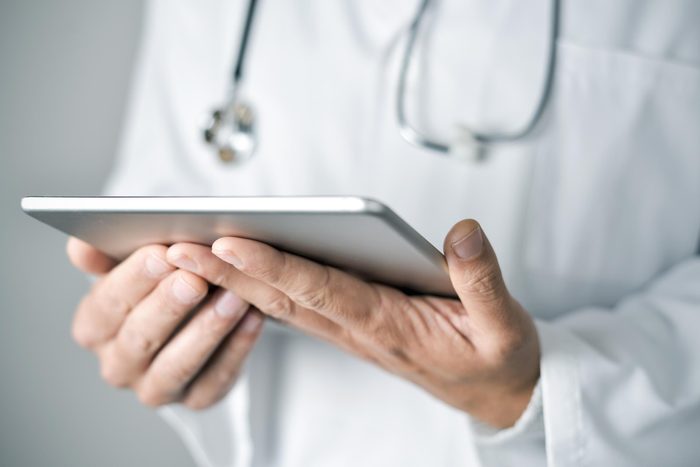
Sign: Missing your annual well visit
“The two main causes of end-stage kidney disease are high blood pressure or diabetes,” says Dr. Uribarri. If you skip your annual physical, you likely won’t know if you are at risk for either of these conditions. “Fully 60 percent of people who are on dialysis [for their kidneys] are on it due to diabetes and hypertension.” Dialysis does your kidneys’ job by filtering your blood—either through a machine (hemodialysis) or through the infusion of fluids inside your gut (peritoneal dialysis).
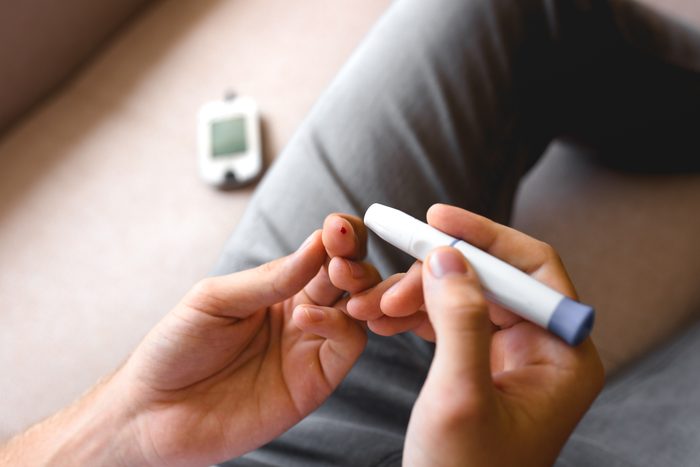
Sign: Not taking diabetes seriously enough
Getting tight control over blood sugar can dramatically improve kidney health and function, Dr. Topf says. “We are seeing drops in the number of people starting dialysis due to diabetes; we’re really starting to turn the tide.” With simple diet and lifestyle changes, some people can drop their blood sugar levels back to a normal range.
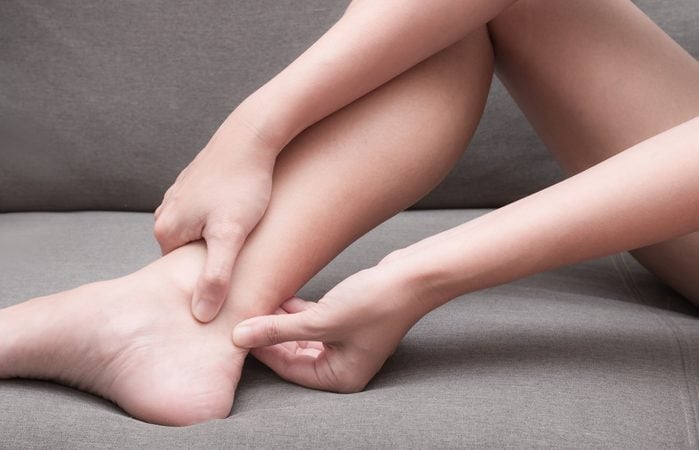
Sign: Your swollen legs and ankles
Your kidney is tasked with eliminating fluid, says Dr. Uribarri. “If you have problems with your kidneys, you may have a tendency to retain fluid and see a buildup or swelling in legs and ankles and even your face and hands,” he says. “This swelling may be a marker of kidney problems or heart failure.”

Sign: Your lack of energy
Fatigue can be caused by many factors, and kidney disease is on the list, Dr. Topf says. Without properly functioning kidneys to monitor red-blood-cell counts, you can develop mild to severe anemia, which often leads to chronic fatigue. Other symptoms include feeling unusually cold, dizzy, or out of breath, so those could also be signs of kidney disease. “A decline in kidney function may be tied to energy levels, and sometimes we see a return of energy once we treat the underlying disease.” Check out these 25 natural energy boosters.
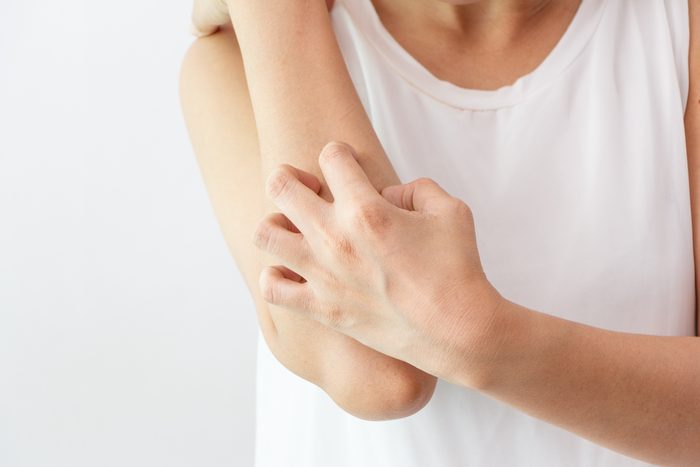
Sign: Unusual rash or itchiness
Properly functioning kidneys remove waste from the bloodstream and keep the circulatory system equipped with the proper balance of nutrients and minerals. When something goes awry, it can impact your skin: Rashes and itchiness can be common signs of kidney disease. “This is usually a sign of advanced disease,” Dr. Topf says.
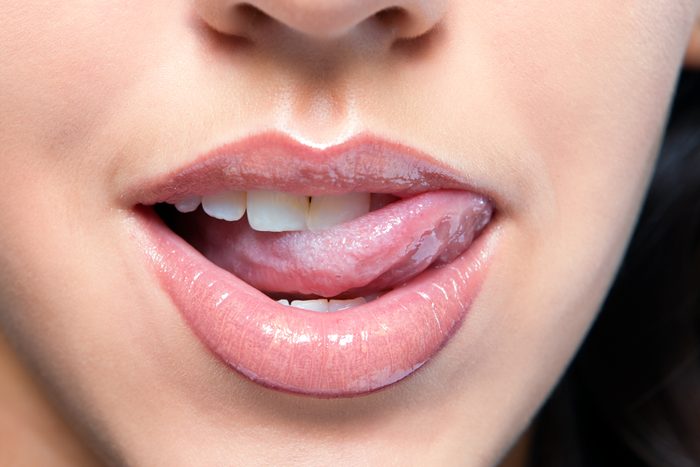
Sign: Metallic taste in your mouth
A build-up of toxins in the bloodstream as a result of poor kidney function could trigger a metallic taste in your mouth or foul breath. Some people report that their food begins to taste metallic. “This is more likely to occur with advanced kidney disease,” says Dr. Topf. Check out 12 things your bad breath is trying to tell you.

Sign: Nausea or vomiting
If enough waste builds up in your body, you might experience nausea or vomiting. Nausea could also lead to a lack of appetite, which, if it occurs for an extended period of time, could cause abnormal weight loss. Here are some more subtle signs your body might be in trouble.
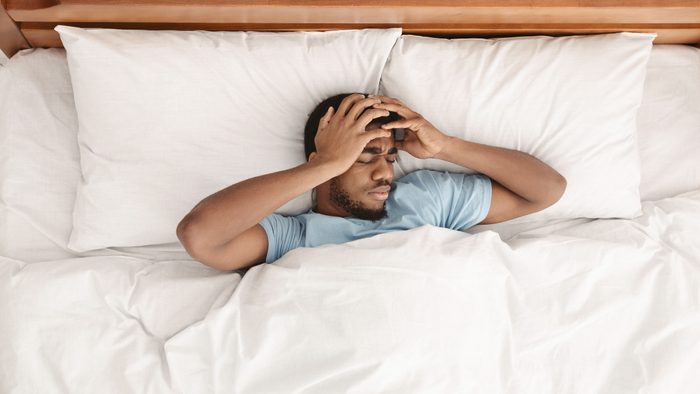
Sign: Dizzy spells
An untreated kidney infection can spread to your bloodstream, wreaking havoc on your whole body. “That inflammation from the bacteria is causing your blood vessels to dilate, which makes the blood pressure drop and makes you dizzy,” says Dr. Ali.
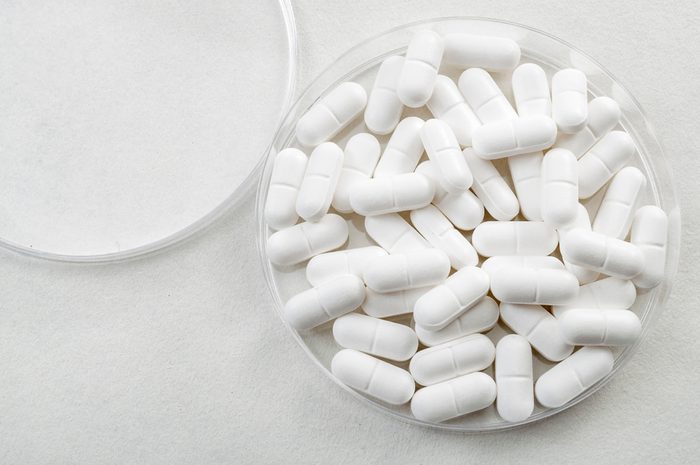
Sign: You love drugstore painkillers
Overdoing it on over-the-counter, nonsteroidal anti-inflammatory drugs (NSAIDs) is no good for your kidneys. A recent study in JAMA Network Open found that active young and middle-aged adults who took the most NSAIDs each month had about a 20 percent increase in their risk for acute and chronic kidney disease. “Be conscious about how often you take these painkillers,” Dr. Topf says. Talk to your doctor as there may be other ways to treat your pain without sacrificing your kidney function. Learn how one type of over-the-counter painkiller can lead to a heart attack.
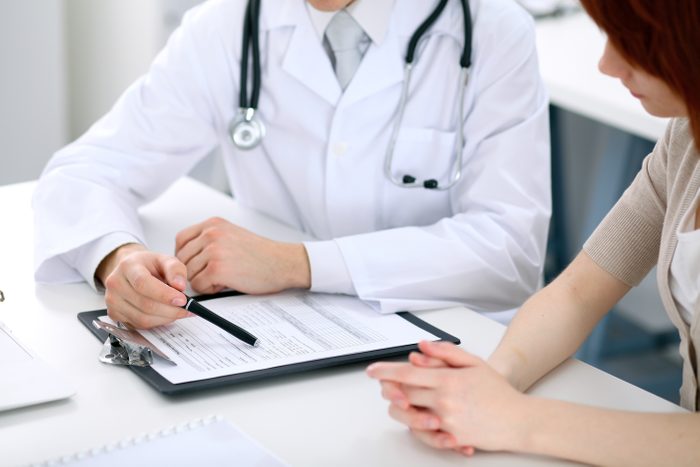
Sign: Your lack of follow-up
If there is blood detected in your urine and you are treated for a kidney infection, get re-tested after the infection clears to make sure you’re truly better, Dr. Topf says. An untreated—or under-treated—infection can lead to serious kidney damage and long-term problems. Make sure you’re not making these 7 innocent mistakes that put your kidneys at risk.
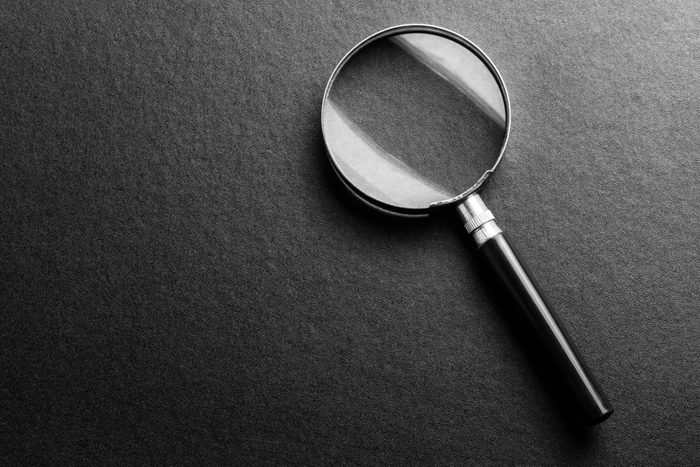
Sign: Not finding out what’s really wrong
“Saying a person has chronic kidney disease is only half of the story as it doesn’t talk about the cause.” Dr. Topf says. He means that heart disease, high blood pressure, diabetes, and even autoimmune diseases like lupus can all damage your kidneys: Without knowing the root cause of your kidney trouble, you can’t effectively treat the problem.
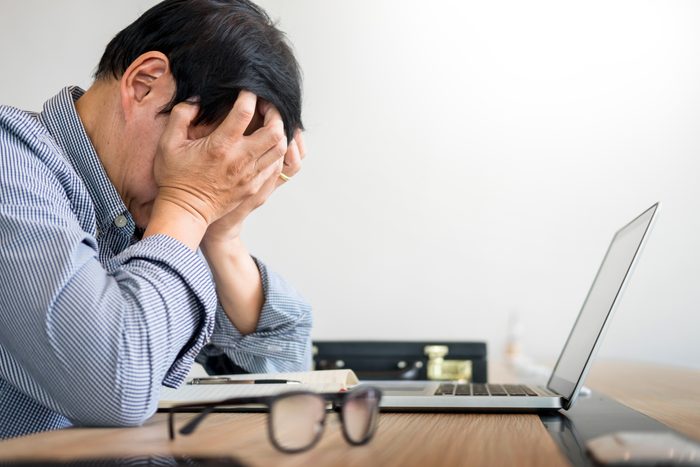
Sign: Your super stressful life
Sure, we all get stressed out, but letting stress get the better of you can hurt your kidneys (not to mention wreck your health in numerous other ways). Stress can increase blood pressure—a risk for kidney disease—and it can also lead to other unhealthy behaviors like smoking and eating high-fat or high-sugar comfort foods, according to the National Kidney Foundation. Here are 37 stress solutions can give you the relaxation you need to refocus.
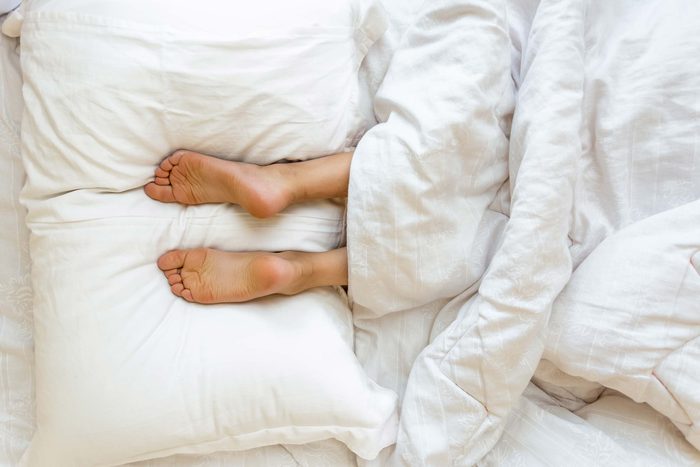
Sign: Your lack of sleep
In a study out of Boston’s Brigham and Women’s Hospital, women who slept five hours or less a night were two-thirds more likely to suffer a rapid decline in kidney function, compared with women sleeping seven to eight hours a night. So far this is only a link—it’s not clear that poor sleep caused the kidney trouble—but poor sleep has been linked to diabetes and high blood pressure, the two main causes of kidney disease.
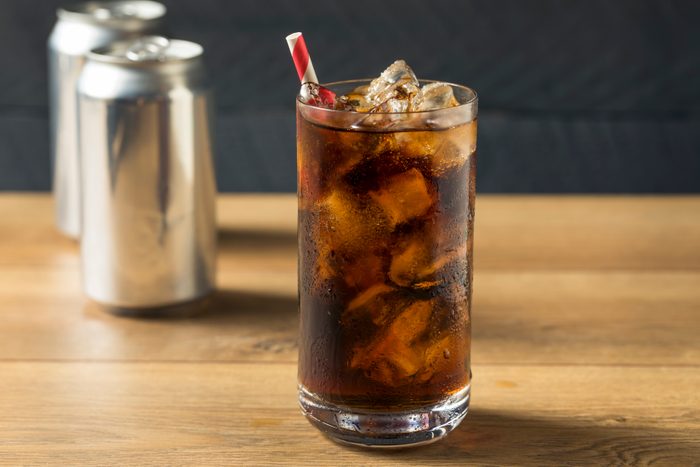
Sign: Your sugary soda habit
African Americans who drank the most sweetened drinks (sugary sodas, juices, and waters) had a 61 percent higher likelihood of developing chronic kidney disease (CKD), according to a study in the Clinical Journal of the American Society of Nephrology (CJASN). Here are 10 reasons to avoid all soda—that means diet soda too.
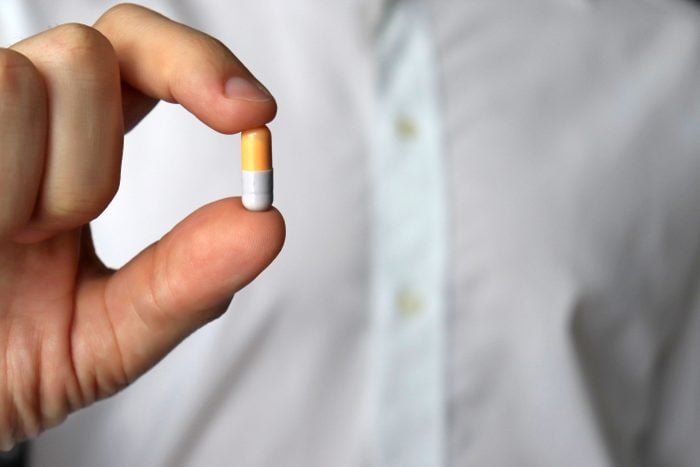
Sign: Your heartburn meds
People who took proton pump inhibitors for heartburn and acid reflux were more likely to develop kidney disease than people who took other forms of antacids such as histamine-2 receptor antagonists, a new study shows. Exactly how these drugs may increase this risk is not fully understood, says the National Kidney Foundation, but the group notes that the drugs can cause an allergic reaction that leads to swelling inside your kidney (called acute interstitial nephritis). If caught early, the condition can be treated.

Sign: Not knowing your risks
The best way to get ahead of kidney disease is to know your risks, says Dr. Agrawal. In addition to a history of high blood pressure and/or diabetes, other risk factors for kidney disease include advancing age, ethnicity (African Americans and Native Americans are considered higher risk), a structural kidney disease such as polycystic kidneys, and being born with a low birth weight.
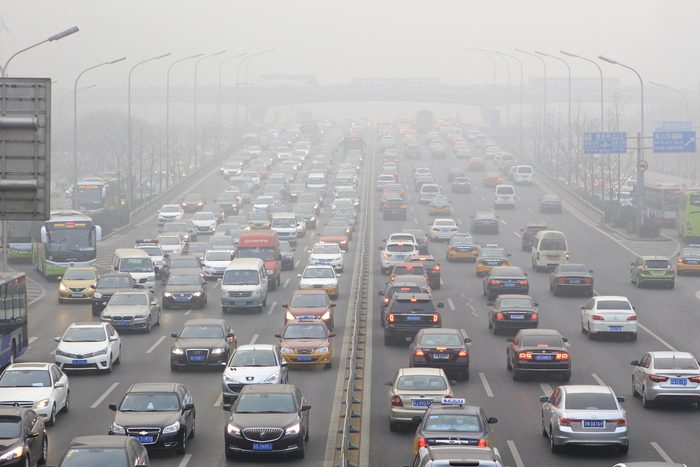
Sign: Too many bad air days
A University of Michigan study suggests that air pollution can fuel chronic kidney disease. “Similar to smoking, air pollution contains harmful toxins that can directly affect the kidneys,” says study author Jennifer Bragg-Gresham, MS, PhD, a Michigan Medicine epidemiologist, in a news release. Fine particulate matter can lead to serious health effects including kidney disease when inhaled often. In addition, air pollution contains heavy metals such as lead, mercury, and cadmium—all of which can harm the kidneys, the study authors point out. Learn more about what air pollution can do to your health.
